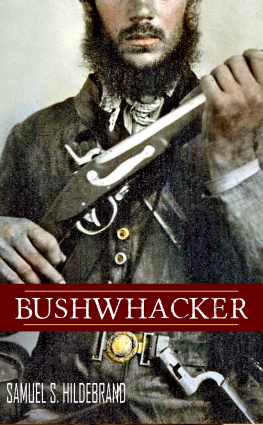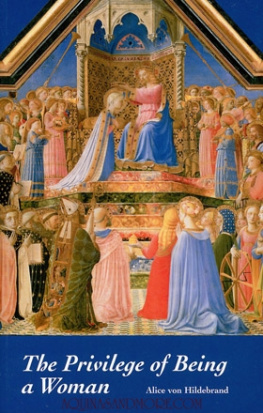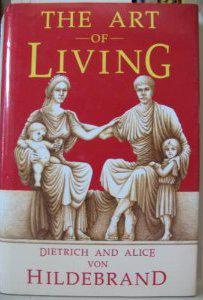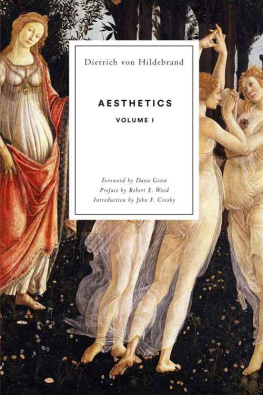
AUTOBIOGRAPHY
OF
SAMUEL S. HILDEBRAND
THE RENOWNED
MISSOURI BUSHWHACKER
AND UNCONQUERABLE
ROB ROY OF AMERICA;
BEING
HIS COMPLETE CONFESSION
RECENTLY MADE TO THE WRITERS, AND CAREFULLY COMPILED BY JAMES W. EVANS AND A. WENDELL KEITH, M. D., OF ST. FRANCOIS COUNTY, MO.; TOGETHER
WITH ALL THE FACTS CONNECTED WITH HIS EARLY HISTORY.
1870
COPYRIGHT 2015 BIG BYTE BOOKS
Get more great reading from BIG BYTE BOOKS
PREFACE.
The history of the term bushwhacker precedes the American Civil War and goes back at least as far as the American Revolution. It refers to a type of guerilla warfare mostly practiced in rural areas involving ambush of individuals or small groups. Some bushwhackers engaged in organized raids and burned towns.
A few, like Sam Hildebrand and Bloody Bill Anderson became renowned for their deeds and had prices on their heads. Hildebrand had little regret for his wartime activities and later felt persecuted by a reputation he felt was undeserved. His area of operations was primarily southern Missouri, the state of his birth.
This book was originally published in 1870. Hildebrand died in Pickneyland, IL in September of 1872. Known as the Missouri Bushwhacker, his gravestone includes the inscription Major MO Bushwhacker.
INTRODUCTION.
THE public having been grossly imposed upon by several spurious productions purporting to be the Life of Sam Hildebrand, we have no apology to offer for presenting the reader with his authentic narrative.
His confession was faithfully written down from his own lips, as the foregoing certificates abundantly prove.
From this copious manuscript we have prepared his autobiography for the press, with a scrupulous care to give it literally, so far as the arbitrary rules of language would permit. Sam Hildebrand and the authors of this work were raised up from boyhood together, in the same neighborhood, and we are confident that no material facts have been suppressed by Hildebrand in his confession.
The whole narrative is given to the reader without any effort upon our part either to justify or condemn his acts. Our design was to give the genuine autobiography of Sam Hildebrand; this we have done.
The book, as a record of bloody deeds, dare-devil exploits and thrilling adventures, will have no rival in the catalogue of wonders; for it at once unfolds, with minute accuracy, the exploits of Hildebrand, of which one-half had never yet been told. Without this record the world would forever remain in ignorance of the night history of his astounding audacity.
We here tender our thanks to those of our friends who have kindly assisted us in this work, prominent among whom is Miss Hilda F. Sharp, of Jefferson City, Mo., who furnished us with those beautiful pencil sketches from which our engravings were made.
JAMES W. EVANS,
A. WENDELL KEITH, M. D. BIG RIVER MILLS, MO., June, 1870.
CHAPTER I.
Since the close of the late rebellion, knowing that I had taken a very active part during its progress several of my friends have solicited me to have my history written out in full. This anxiety to obtain the history of an individual so humble as myself, may be attributed to the fact, that never perhaps since the world began, have such efforts been put forth by a government for the suppression of one man alone, as have been used for my capture, both during the war and since its termination. The extensive military operations carried on by the Federal government in South-east Missouri, were in a great measure designed for my special destruction.
Since the close of the rebellion, while others are permitted to remain at home in peace, the war, without any abatement whatever, has continued against me with a vindictiveness and a lavish expenditure of money that has no parallel on this continent; but through it all, single-handed, have I come out unscathed and unconquered.
My enemies have thrust notoriety upon me, and have excited the public mind at a distance with a desire to know who I am and what I have done. Taking advantage of this popular inquiry, some enterprising individual in an eastern state has issued two or three novels purporting to be my history, but they are not even founded on fact, and miss the mark about as far as if they were designed for the Life of Queen Victoria. I seriously object to the use of my name in any such a manner. Any writer, of course, who is afflicted with an irresistible desire to write fiction, has a perfect right to do so, but he should select a fictitious name for the hero of his novels, that his works may stand or fall, according to their own intrinsic merit, rather than the name of an individual whose notoriety alone would insure the popularity of his books. But an attempt to palm a novel on the inquiring public as a history of my life, containing as it does a catalogue of criminal acts unknown to me in all my career, is not only a slander upon myself, but a glaring fraud upon the public.
Much of our misfortune as a nation may be attributed to the pernicious influence of the intolerant, intermeddling, irrepressible writers of falsehood. In a community where the spirit of fiction pervades every department of literature and all the social relations of life, writers become so habituated to false coloring and deception, that plain unadorned truth has seldom been known to emanate from their perverted brains; it would be just as impossible for them to write down a naked fact as it would for the Prince of Darkness to write a volume of psalms.
The friend who has finally succeeded in tracing me to my quiet retreat in the wild solitudes of the down trodden South, is requesting me to make public the whole history of my life, without any attempt at palliation, concealment or apology. This I shall now proceed to do, in utter disregard to a perverted public opinion, and without the least desire or expectation of receiving justice from the minds of those who never knew justice, or sympathy from those who are destitute of that ingredient.
The necessity that was forced upon me to act the part I did during the reign of terror in Missouri, is all that I regret. It has deprived me of a happy home and the joys of domestic peace and quietude; it has driven me from the associations of childhood, and all the scenes of early life that so sweetly cling to the memory of man; it has caused my kind and indulgent mother to go down into her grave sorrowing; it has robbed me of three affectionate brothers who were brutally murdered and left weltering in their own innocent blood; it has reduced me and my family to absolute want and suffering; and has left us without a home, and I might almost say, without a country.
A necessity as implacable as the decrees of Pate, was forced upon me by the Union party to espouse the opposite side; and all the horrors of a merciless war were waged unceasingly against me for many months before I attempted to raise my hand in self defense. But fight I must, and fight I did! War was the object, and war it was. I never engage in but one business at a timemy business during the war was killing enemies. It is a very difficult matter to carry on a war for four years without some one getting hurt. If I did kill over a hundred men during the war, it was only because I was in earnest and supposed that everybody else was. My name is east out as evil because I adopted the military tactics not in use among large armies. They were encumbered with artillery and fought where they had ample room to use it, I had no artillery and generally fought in the woods; my plan was the most successful, for in the regular army the rebels did not kill more than one man each during the war.
Next page













